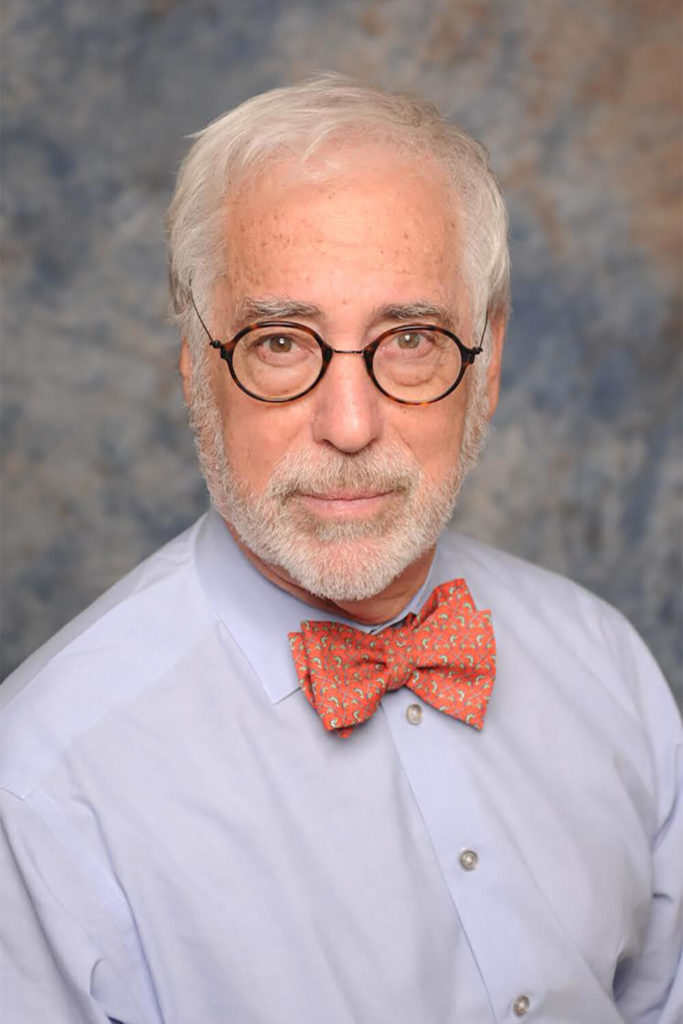David Heiden, MD
Detecting CMV retinitis

David Heiden trained in both Internal Medicine and Ophthalmology at CPMC and, completed a fellowship in Uveitis at the UCSF Proctor Foundation. His extensive medical background includes research fellowships in cardiovascular disease and blood coagulation, and a dozen years as an emergency room doctor.
His experience at the peak of the AIDS epidemic influenced his career profoundly, resulting in his AAO Humanitarian Award in 2018 for his innovative work to reduce AIDS-related blindness and mortality in resource-poor settings around the world.
Serving as Director of the Special Clinic for Ocular Complications of HIV/AIDS, Mt. Zion Hospital / UCSF, San Francisco, 1996-98 David Heiden expanded his work abroad in 2004, demonstrating an exemplary focus on improving education and expanding care for disadvantaged people around the world which continues today.
During his years as an emergency room physician he also volunteered in refugee disasters on the Thai-Cambodian border (1980), in the Somalia Boo’co Refugee camp (1981-2), emergency vaccination efforts in Uganda (1983) and during the Sahel famine (1984 – 1985) in Eastern Sudan. Notably, he reported on the Sudan famine in his book “Dust to Dust – a doctor’s view of famine in Africa.” (Temple University Press 1992)
After joining Pacific Eye Associates, and appreciating that eye complications of HIV/AIDS in high-income countries had vanished, Heiden began wondering if AIDS-related eye complications were a problem in resource-poor settings, where the bulk of HIV/AIDS disease burden had shifted. Little information was available. In 2004, on his own initiative, he set out to answer several questions: Is CMV retinitis causing blindness in resource-poor settings? And if so, how could ophthalmology skills be implemented to help?
Heiden started by visiting leading ophthalmology institutions in India (Aravind, Sankara Nethralya), Thailand (Chiang Mai Medical School), Uganda (Mulago Hospital Department of Ophthalmology), and South Africa (Groote Schuur and Tygerborg Medical Schools). He discovered that because of stigma, and a spectrum of other obstacles to care, typically: AIDS patients did not have access to eye skills; CMV retinitis patients presented with already advanced disease or blindness; and CMV retinitis patients were commonly lost to follow-up, rarely receiving adequate treatment.
Looking deeper, Heiden investigated in every possible setting, which eventually included Mother Theresa’s AIDS Hospice in the most violent Black Township of South Africa (Khayelitsha) and the Bangkwang Maximum Security Prison in Bangkok, as well as AIDS and infectious disease wards, and AIDS clinics run by MSF (Médecins Sans Frontières, or, Doctor Without Borders) and other NGOs in Cambodia, Thailand, Laos, Tanzania, Uganda, South Africa, Myanmar, China, Mozambique, the Russian Federation, and Ukraine. A collaborative analysis of the problem and proposed solutions, with contributions from MSF, academia, the Clinton Foundation HIV/AIDS Initiative, was published in 2007, in PLoS Medicine, in an article titled: Cytomegalovirus Retinitis: The Neglected Disease of the AIDS Pandemic. (Heiden lead author).
Heiden advocated a strategy of transfer of skills, with primary management of CMV retinitis being handed-off from the ophthalmologist to the AIDS clinician. This approach was based on his experience in refugee camps and re-enforced by simple observations from his first work with MSF in Siem Reap, Cambodia (2004), and Yangon, Myanmar (2006), that immediate eye exam with an indirect ophthalmoscope in the AIDS clinic increased detection of CMV retinitis ten-fold. Heiden pushed for management of AIDS-related CMV retinitis at the primary care level, like all other AIDS-related opportunistic infections.
Notably, David Heiden has invited a number of Barkan Society members to participate in his work. Dr. Marina Soboleva and Denise Barsness have served on trips to St. Petersburg Russia, Nikolas London worked in Myanmar on his residency elective, Wayne and Helen Fung traveled to Kunming, Yunnan Province of China, and collaborated in running an AIDS workshop, and Rishi Doshi co-directed two workshops in Myanmar (2012, 2018).
Today David Heiden continues to practice at Pacific Eye Associates and serves as an unsalaried Director of the AIDS Eye Initiative at the Seva Foundation. He is a frequent contributor to Grand Rounds.
